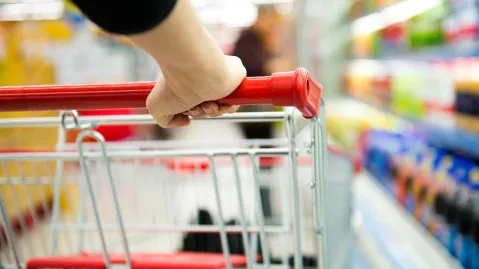
Asian food aggregators beef up e-grocery operations
Delivery companies seized the opportunity opened by a rise in online shopping.
Asian last mile delivery service providers such as Singapore-based Grab Holdings and Indian food aggregator Swiggy have been stepping up their focus on the fast-growing e-groceries space in recent years, according to a report from GlobalData.
The pandemic has provided an opportunity for hyperlocal food-delivery service providers to diversify their operations to boost revenues and make their business more resilient to the changing economic cycles and consumer behavior, the report said.
The prolonged stay at home has encouraged consumers to shop online for daily essentials to avoid frequent trips to brick-and-mortar retail stores and risk getting infected, GlobalData’s consumer analyst Bobby Verghese said.
“As a result, they have become accustomed to the convenience and safety of online grocery shopping. Even after the pandemic restrictions were eased, the online grocery shopping trend has continued to gain momentum,” Verghese said.
In a survey, 31% of Asia-Pacific consumers affirmed that they were shopping online for groceries more often, and 14% said that they had begun to do this during the third quarter of 2021.
With demand for ride-hailing services falling in 2020 due to the pandemic, Grab Holdings turned its focus to its grocery delivery service, GrabMart. In 2020, Grab launched its on-demand grocery delivery services in eight South East Asian markets it operates in.
Similarly, with the food aggregator business cooling off during the lockdown, Zomato and Swiggy turned to online grocery deliveries to boost revenues and employee productivity in India.
Zomato invested $100m into grocery delivery startup, Grofers in 2020. In July 2021, Swiggy completed a $1.25bn funding round to develop its non-food hyperlocal delivery verticals, Supr Daily, Instamart, and Genie.
Verghese observed that the online grocery delivery market in Asia is expanding rapidly, attracting consumers with competitive prices, faster deliveries, and improved customer experience.
“The growth of e-groceries can accelerate the digitization of the burgeoning unorganized retail sector in Asia. With competition heating up rapidly in this space, market consolidation is anticipated in the immediate future,” he said.



















 Advertise
Advertise







